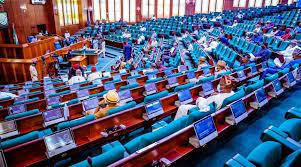 Despite the persistent but marginal fall in the consumer price index which is a measure of inflation in Nigeria, the cost of food and essential commodities still remains exorbitant for consumers in the largest economy in Africa.
Despite the persistent but marginal fall in the consumer price index which is a measure of inflation in Nigeria, the cost of food and essential commodities still remains exorbitant for consumers in the largest economy in Africa.
On Wednesday the House of Representatives of Nigeria bemoaned the draconian state of the economy laying emphasis on the economic hardship and the purchasing power decline in Nigeria, the house of rep labelled Nigeria’s economic state the lowest economic decline experienced since President Muhammadu Buhari’s first regime in 1983.
Nigerian lawmakers now plans to have viable discussions with critical stakeholders in the country to find permanent solutions to the economic imbalance and bring long run stability to prices of goods and services.
The meeting also include engagement with Manufacturers Association of Nigeria (MAN),captains of industries, trade union associations, boards of directors, amongst other stake holders in the Nigerian economy.
Presenting the motion at plenary, A lawmaker stated, “Unfortunately, this is still the lowest decline Nigeria’s economy has experienced since 1983. What does this mean for the average Nigerian? Not too farfetched, because life has become increasingly difficult for many Nigerians, especially the low-income earners, unemployed youth, other vulnerable people, those on fixed incomes such as the pensioners and others.
he said “the prices of food items, commodities, goods and services have skyrocketed by as much as 100 percent in many parts of Nigeria in the last one year attributed largely to monetary policy, border closures, COVID-19 containment measures, and insecurity, causing Nigeria’s inflation rate to rise in geometric progression in August 2021.
“Price index in the past months has increased astronomically owing to many controllable and uncontrollable factors with inflation at a 48-month high, posing the challenge for increased spending on housing, shelter, medicals, clothes, baby food and even cooking gas, because our nation’s local production still falls short of our local demand, minding the population, climate change, and hunger, a major future issue looms if, immediate remedial action is not taken care of soon, by this House.
 Despite the persistent but marginal fall in the consumer price index which is a measure of inflation in Nigeria, the cost of food and essential commodities still remains exorbitant for consumers in the largest economy in Africa.
Despite the persistent but marginal fall in the consumer price index which is a measure of inflation in Nigeria, the cost of food and essential commodities still remains exorbitant for consumers in the largest economy in Africa.